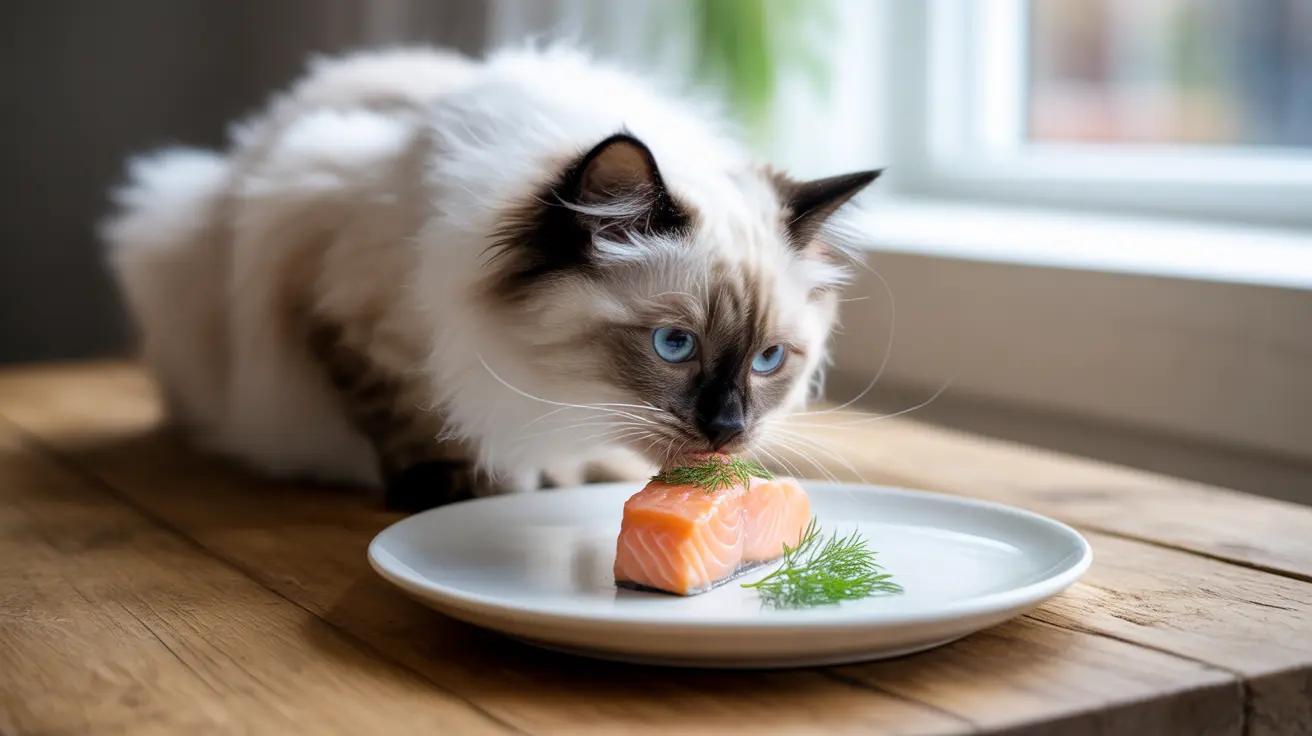The Truth About Feeding Salmon to Your Cat
Many cat owners wonder about adding salmon to their feline friend's diet. With its rich nutritional profile and appealing taste, salmon can indeed be a healthy addition to your cat's meal plan – when prepared and served correctly. This comprehensive guide will explore the benefits, risks, and best practices for feeding salmon to cats.
Understanding the role of salmon in your cat's diet is crucial for making informed decisions about their nutrition. While cats are obligate carnivores requiring primarily meat-based proteins, salmon offers unique benefits that can supplement their regular diet when properly incorporated.
Health Benefits of Salmon for Cats
Salmon packs a powerful nutritional punch that can significantly benefit your cat's health. Here are the key advantages:
Essential Omega-3 Fatty Acids
Salmon is rich in omega-3 fatty acids, particularly EPA and DHA, which provide numerous health benefits for cats:
- Promotes healthy skin and a glossy coat
- Reduces inflammation throughout the body
- Supports joint health and mobility
- Enhances brain function and cognitive health
High-Quality Protein Source
Cats require high-quality protein for optimal health, and salmon delivers exactly that. This protein helps:
- Maintain lean muscle mass
- Support growth and development
- Provide essential amino acids
- Aid in tissue repair and maintenance
Safe Preparation and Serving Guidelines
Cooking Methods
Always serve salmon fully cooked to eliminate harmful bacteria and parasites. The best preparation methods include:
- Baking without seasonings
- Steaming plain
- Poaching in water (no oils or spices)
Portion Control
Moderation is key when feeding salmon to cats:
- Limit to 1-2 small servings per week
- Remove all bones before serving
- Ensure pieces are bite-sized
- Use as a treat, not a meal replacement
Potential Risks and Precautions
When to Avoid Salmon
Be aware of these important safety considerations:
- Never serve raw salmon
- Avoid smoked or cured salmon
- Skip seasonings, oils, and marinades
- Don't feed canned salmon with high sodium content
Signs of Salmon Sensitivity
Watch for these potential reactions:
- Digestive upset
- Vomiting or diarrhea
- Skin irritation
- Changes in behavior or appetite
Frequently Asked Questions
Is salmon safe and healthy for my cat to eat, and how often can I give it?
Yes, salmon is safe and healthy for cats when properly prepared and served in moderation. Limit servings to once or twice per week as a treat, not as a primary food source. Always ensure the salmon is thoroughly cooked and plain.
Can cats eat raw, smoked, or canned salmon, and which forms should I avoid?
Cats should never eat raw or smoked salmon due to the risk of harmful bacteria and parasites. Canned salmon should be avoided unless specifically formulated for cats, as it often contains too much sodium. Stick to fresh, thoroughly cooked salmon without seasonings.
How should I prepare salmon for my cat (cooking method, portion size, and whether to include skin or bones)?
Cook salmon thoroughly by baking, steaming, or poaching without any seasonings. Remove all bones and serve in small, bite-sized pieces. The skin can be included if thoroughly cooked but should be limited due to its high fat content. A typical portion should be no larger than a few small chunks.
What are the signs of a salmon allergy or digestive upset in cats, and what should I do if my cat reacts?
Signs of salmon sensitivity include vomiting, diarrhea, itching, excessive grooming, or changes in behavior. If you notice any of these symptoms, discontinue feeding salmon and consult your veterinarian immediately.
Can feeding salmon regularly cause nutrient imbalances, mercury buildup, or other long-term health risks for my cat?
While salmon is nutritious, feeding it too frequently can lead to potential mercury accumulation and nutritional imbalances. Stick to moderate portions as treats rather than making it a dietary staple. Always maintain a balanced, complete commercial cat food as the primary diet.
Conclusion
Salmon can be a healthy and beneficial addition to your cat's diet when properly prepared and served in moderation. By following these guidelines for safe preparation and portion control, you can help your cat enjoy the nutritional benefits of salmon while avoiding potential risks. Remember to always consult with your veterinarian before making significant changes to your cat's diet.






